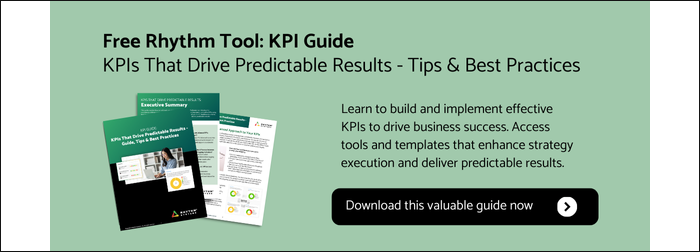As a middle market CEO, you're constantly navigating a business landscape that's both dynamic and challenging. In this environment, strategic planning is not just beneficial; it's essential. But how do you ensure that your strategic planning sessions are more than routine discussions? The answer lies in leveraging the expertise of a strategic planning facilitator. This role, distinct from traditional consultants, acts as a catalyst for transformative decision-making and planning. This guide will explore the unique value a strategic planning facilitator brings to your company and how to maximize this partnership for your business's success.
The Role of a Strategic Planning Facilitator
Definition and Responsibilities: A strategic planning facilitator specializes in guiding companies through the process of strategic planning. Unlike traditional consultants who may provide solutions, facilitators focus on enabling your team to develop its strategies. They create an environment conducive to open dialogue, critical thinking, and collaborative decision-making.
Contrast with Traditional Consultants: The critical difference lies in their approach. While consultants often propose expertise-based solutions, facilitators help your team unearth them. This approach generates tailored strategies and fosters a sense of ownership and commitment among team members.
Enhancing Strategic Discussions: Facilitators excel in turning routine meetings into dynamic strategy sessions. They employ techniques to ensure every voice is heard, every option is considered, and the team stays focused on long-term goals. This leads to a more thorough and effective strategic plan reflecting your company’s capabilities.
Hear how an expert strategic planning facilitator helped BioPlus, a specialty pharmaceutical company, achieve their brand promise in one session that led them to be #1 in their space.
Why Middle Market Companies Need a Professional Strategic Planning Facilitator
Unique Challenges: Middle market companies often operate in a unique niche – significant enough to face complex issues but not as resource-heavy as their larger counterparts. This situation demands agile and well-thought-out strategies. With their external perspective and expertise, a facilitator can help navigate these challenges effectively.
Tailored Solutions for Specific Needs: Facilitators understand the intricacies of middle-market businesses. They can tailor their approach to suit your specific industry, culture, and business model, ensuring that the strategies developed are effective, practicable, and aligned with your company’s values and company.
Selecting the Right Strategic Planning Facilitator
Choosing the right strategic planning facilitator is crucial. Look for someone with a strong background in strategic planning, an understanding of your industry, and the ability to engage diverse teams. The ideal facilitator should possess excellent listening skills, the ability to communicate complex ideas simply, and the talent to stimulate and manage productive discussions without dominating them.
Questions for Potential Candidates
- Experience with Similar Companies: How have you helped companies of our size and industry before?
- Methodology: What approaches do you use in facilitating strategic planning sessions?
- Conflict Resolution: How do you handle disagreements or conflicts during a session?
- Inclusivity: How do you ensure all voices are heard and valued?
- Success Stories: Can you share examples where your facilitation led to significant improvements or breakthroughs?
Importance of Experience and Skills: A facilitator with experience can provide relevant and actionable insights. Their skills in guiding discussions, synthesizing diverse opinions, and keeping the team aligned with strategic objectives are vital. They should be adept at creating a safe, open environment where creative and strategic thinking can flourish.
The Process of Strategic Planning with a Facilitator
Stages of Facilitation: The strategic planning process typically involves several key steps:
- Preparation: Understanding the company's current situation defining the scope of the session.
- Goal Setting: Aligning a vision and setting achievable, strategic goals.
- Strategy Development: Facilitating discussions to develop strategies for reaching the set goals.
- Implementation Planning: Translating strategies into actionable plans.
- Follow-up: Ensuring accountability and adjusting strategies as needed.
A Facilitator's Role in Planning
- Preparation: The facilitator works with leaders to understand the company's current strategic objectives for the session.
- Goal Setting: They guide the team in establishing clear, realistic goals, ensuring alignment with the company’s vision.
- Company Development: Here, the facilitator's skill in driving creative discussions is crucial. They help the team explore various options and develop effective strategies.
- Implementation Planning: The facilitator assists in translating strategies into concrete action plans defining roles, responsibilities, and timelines.
- Follow-Up: A critical role post-session is to help the team stay accountable to the plan and adapt strategies as necessary.
Adapting to Company Needs: Each company is unique, and a skilled facilitator tailors their approach accordingly. They might use different tools and techniques based on the company’s size, specific challenges, and team dynamics. The facilitator's ability ensures that the strategic planning process is effective and resonates with the team.
Hear how having a strategic planning facilitator has helped Simms Fishing grow.
Measuring the Impact and ROI of a Professional Facilitator
Evaluating Effectiveness: The effectiveness of strategic planning sessions facilitated by an external expert can significantly influence your company's trajectory, it's crucial to establish and monitor specific metrics or Key Performance Indicators (KPIs) aligned with your strategic goals.
Setting Up Metrics and KPIs
- Goal Alignment: Establish metrics directly linked to each strategic goal. This ensures a clear line of sight from planning to execution and outcome.
- Performance Tracking: Implement regular tracking mechanisms. This could be through monthly reviews, quarterly assessments, or annual audits, depending on the nature of the goals.
- Balanced Scorecard Approach: Consider adopting a balanced scorecard framework that looks at financial, customer, internal process, and learning and growth metrics for a comprehensive view.
Specific Metrics Examples
- Financial Performance: Revenue growth, profit margins, cost savings.
- Customer Impact: Customer acquisition rates, customer satisfaction scores, net promoter scores.
- Operational Efficiency: Production time, cost per unit, supply chain efficiency.
- Employee Engagement: Staff turnover rates, employee satisfaction surveys, productivity metrics.
- Innovation and Growth: Number of new products launched, R&D investment, market expansion metrics.
Continuous Improvement
- Feedback Loops: Set up mechanisms to regularly gather feedback from stakeholders at all levels. This can inform adjustments in strategy or execution.
- Learning and Adaptation: Use the data collected to learn and adapt. If specific strategies are not yielding the expected results, a reassessment might be necessary.
Long-Term Impact
- Sustainable Growth: Evaluate the long-term sustainability of growth and improvements. Short-term gains should align with long-term strategic objectives.
- Competitive Advantage: Assess how the strategic changes have affected your position in the market compared to competitors.
Final Thoughts on Measurement: Measuring the impact of strategic planning is both an art and a science. While quantitative metrics are essential, qualitative insights – such as team morale, company culture, and customer relationships – are equally important. A comprehensive approach to measurement will provide a clear picture of the value added by a strategic planning facilitator and the overall effectiveness of the strategic planning process.
Conclusion
In today's fast-paced business world, strategic planning is more than a boardroom exercise; it's a vital tool for growth and fast adaptation to changing market conditions. A strategic planning facilitator brings a unique blend of expertise, methodology, and perspective that can transform this process from a mere formality into a powerful catalyst for change.
As a CEO, investing in a skilled facilitator can be a game-changer for your company. It can lead to a clearer vision, more cohesive strategies, and tangible business results. The journey to achieving your company’s full potential begins with the crucial step toward strategic clarity and focus.
We encourage you to consider the long-term benefits and take action. Whether evaluating your current strategic planning process or actively seeking a facilitator, the time to act is now. For more insights or to explore facilitation services, visit our strategic planning facilitator page.
Empower your team, align your strategies, and propel your company forward. The future of your business deserves nothing less.





